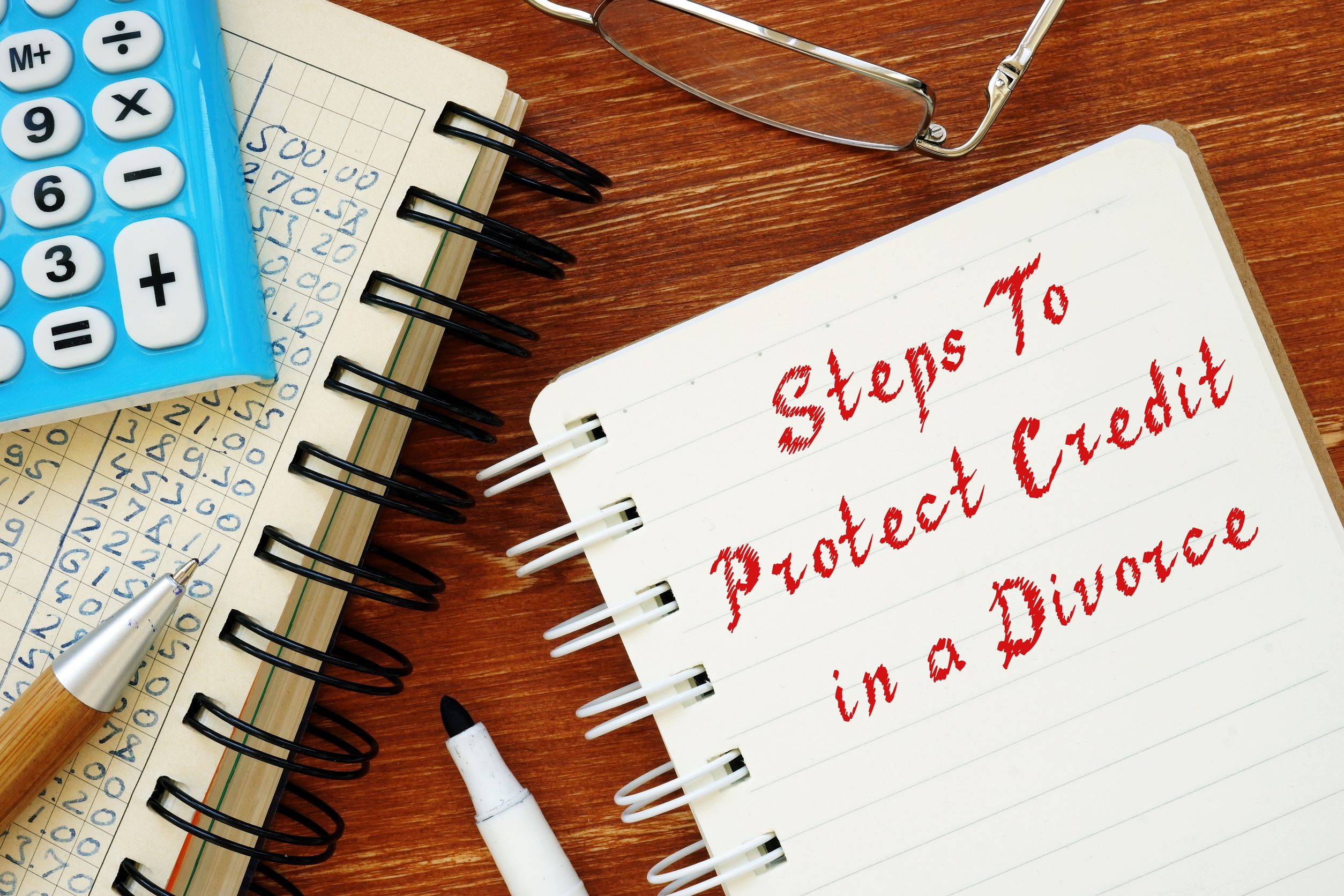 A divorce can be a complicated legal process, an emotional rollercoaster and a financial challenge for both spouses.
A divorce can be a complicated legal process, an emotional rollercoaster and a financial challenge for both spouses.
How a divorce will impact credit history and scores is a frequent concern for divorcing spouses.
That’s certainly understandable as many people worry about how they’ll land on their feet financially after a divorce.
Spouses considering a divorce should start the process of establishing accounts (checking, savings, and credit) separate from the other spouse. Order a credit report to get a snapshot of your current credit situation. It’s also highly recommended to change login information on accounts that are solely in your name.
Below, we share several answers to questions you might have regarding protecting your credit during a divorce.
But first, understand that once a divorce is filed, it’s highly advisable to get guidance from an experienced attorney before making changes to your finances.
Fusco Law Group can provide you with reliable and knowledgeable legal representation regarding a divorce. Please don’t hesitate to reach out to Fusco Law Group at (904) 567-3113 for a free consultation.
Frequently Asked Questions About Protecting Your Credit During a Divorce
Does a divorce lower your credit score?
Your marital status does not directly impact your credit score. Credit scores are based on the credit history of an individual while married or divorced.
How do joint credit accounts impact credit scores during and after a divorce?
Credit reports will include all credit accounts associated with each spouse. That includes joint accounts, cosigned accounts, and an authorized user of the account. That means late payments and large credit purchases on the account will impact the credit score of each spouse regardless of marital status.
What is the first step to protecting your credit during a divorce?
A spouse considering or going through a divorce should order a credit report from one of the credit reporting agencies (Equifax, Transunion, and Experian). This will help identify associated joint and individual credit accounts and debts.
A credit report will not only help pinpoint accounts that require attention to minimize risk to credit scores, but it also may be a vital document for a divorce attorney to use during the divorce process.
What should you do with accounts associated with your name during a divorce?
Since accounts associated with your name (joint, cosigned, authorized user) can impact your credit score, it’s imperative to separate yourself or your spouse from those accounts to protect your credit.
That may mean paying off those debts. Transferring balances to cards solely owned by you or your spouse. Freezing accounts to prevent additional charges. Removing authorized users from accounts owned by you. Refinancing a home or vehicle in your name.
A divorce attorney can offer guidance about the best way to freeze accounts and divide debts associated with both spouses.
Can a divorce wipe out joint debt responsibilities?
While the court may specify which spouse is responsible for specific debts, the divorce decree does not break the contract with the creditor or lender. Joint accounts will still appear in both spouses’ names even after the divorce. If an ex-spouse is late with a payment or refuses to pay a jointly owned debt, both spouses’ credit scores may be impacted.
That’s why a clean separation of names associated with credit accounts can help both spouses protect their credit scores after a divorce.
Get the Legal Help You Need
A divorce can be a complicated legal process, especially when contested. An experienced Family Law Attorney can help protect your rights in a divorce.
Contact the Fusco Law Group: (904) 567-3113 for a free consultation.
